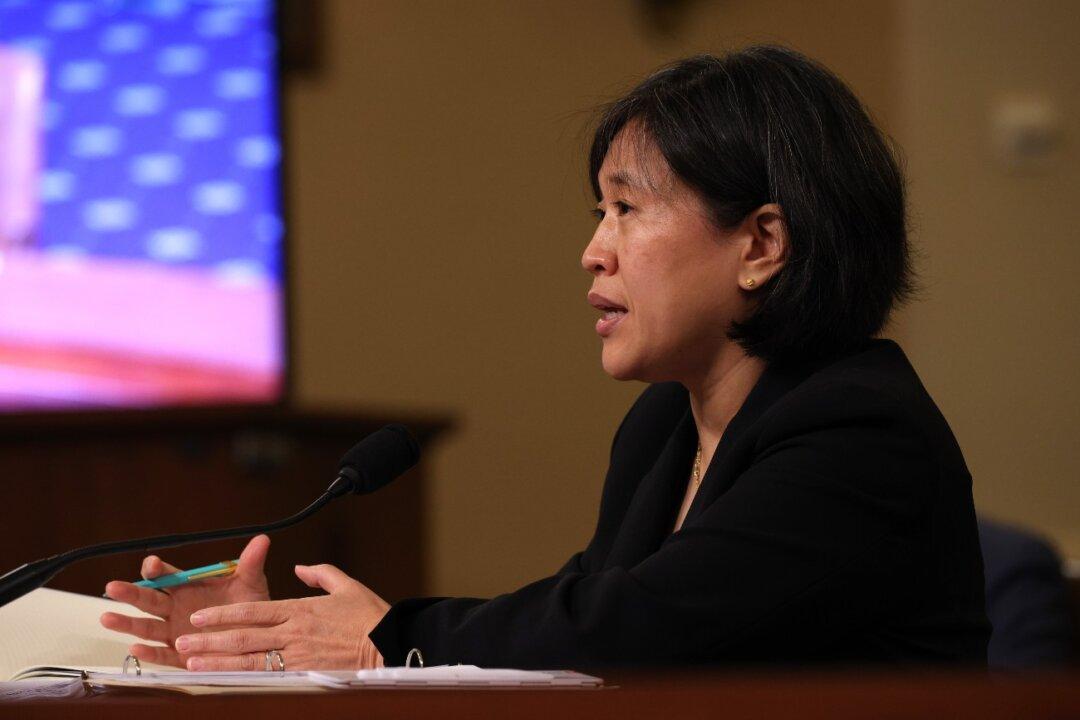GENEVA—Top U.S. trade negotiator Katherine Tai on Thursday affirmed the Biden administration’s commitment to the World Trade Organization (WTO), saying consensus was possible on several trade and health proposals at a major meeting next month.
The 25-year-old global trade body is facing questions about its relevance and director-general Ngozi Okonjo-Iweala is under pressure to deliver quick reforms and clinch its first multilateral trade deal in years at the Nov. 30-Dec. 3 meeting.





